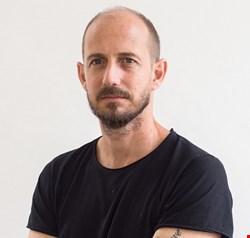
The past year witnessed a dynamic period in cybersecurity’s growth from espionage tools, to massive data breaches, to ransomware impacts, to government, law enforcement and regulators taking notice of the development in the sector.
To mark the end of this year and decade, Infosecurity talked to a series of people from around the globe, each from a different continent, to gauge their perspective on which trends affected their region, and how cybersecurity impacted local businesses and culture.
Representing Africa is Charl van der Walt, strategist at SecureData. Based in Capetown in South Africa, van der Walt has built a reputation for both himself as a recognized cybersecurity researcher and expert, and for SecureData as one of the most notable companies to emerge from the continent into international markets. Speaking in London at SecureData's conference, he said there are other powerhouses like Nigeria, but from a technology point of view he felt that South Africa is probably the closest equivalent to a western developed infrastructure.
“In terms of innovation the scale is tipping towards east Africa: Kenya, Uganda, there is a lot of interesting stuff coming from those areas and [we are] starting to see more skill as conferences and hacker teams start to emerge,” he said. However the advantage that South Africa takes is in infrastructure, whilst in East Africa the focus has been more on using mobile networks, where he said payment systems like MPESA have emerged, and in Kenya “it is massively empowering to the economy as money moves easily.”
In terms of the headlines from around the globe, many seem to be from the USA and Europe. Is there a knock-on effect to African businesses and citizens? Van der Walt didn’t feel there was, apart from when someone may have an account with a bank that gets hit, and while local incidents like the breach by Liberty Bank and a ransomware hit on Johannesburg do get reported, they barely make headlines outside of South Africa.
Van der Walt also admitted that while major DDoS attacks may impact the likes of AWS, “it may ripple down to us, depending on where it is hitting as we are connected to the same internet.” In this case, has there been much take-up of AWS and IaaS to overcome the infrastructure issue? He said there has been a lot of drive into Africa by these IaaS providers, and AWS is building a data center in Capetown “and that is almost a disruptor in the market because of salaries they offer.”
Another company to make a mark locally is Huawei, who have a local data center in South Africa. Van der Walt said that the rest of Africa “is open to interest from China” and it was not uncommon to see entire billboards in Chinese advertising Asian companies.
So was there a more positive future for technology and specifically security companies in Africa? He said that it is hard to summarize, but there are “pockets where democracy and free democracy have been established,” but also pockets where social problems have not been solved. We met just days after South Africa won the 2019 Rugby World Cup, and van der Walt said this “amazing thing” will boost confidence in the whole continent.
“Africa is full of remarkable accomplishment in face of adversity, but feels like ice is always really thin.”
Van der Walt highlighted the power problem that African nations experience, saying that the “economy is struggling as we cannot generate enough power because of systemic mismanagement” and due to not building or maintaining services. “You can get away with it for years and then one day, you don’t, and one more power station drops out because of rain or cold, and we have four days of blackouts.” He said he felt cyber followed the same analogy that “if you neglect it and let it go there is a slow disintegration of core infrastructure and it manifests in all of sorts of ways,” he said. “It all starts to degrade over time and the capacity to interact in the world gets degraded.”
What about the agreement with Huawei, considering the controversies in both the USA and UK? He said that the agreements to work with the Chinese are “not entirely stupid,” but he was concerned that outsourcing its core infrastructure to the Chinese “will leave you effectively as a digital colony of China.” While he doesn’t believe they would “steal intellectual property and run away,” he did state that the Chinese will use that leverage to keep you in exactly the same place “and my fear is that we will look back in 25 years and we will still be on that same brink.”
He said the reason to have an infrastructure is so you can secure yourself, “as if you cannot secure yourself you cannot assert yourself.” He said that the continent is “so busy dealing with HIV, poverty, unemployment and education, that no one pays attention to this stuff and I worry about it as the world is digitizing and we are too, but we have not got the capacity to control our digital infrastructure.”
He concluded by saying that Africa has a mix of incredible natural resources, lots of energy and optimism, and fundamentally different world views.
“We live in a world dominated by western ideologies and ways, that it is refreshing to think collectively which is a very African idea.”
“As we go into the fourth industrial revolution and the world gets changed again, that transformative way will bring a new way of those kinds of threats.”
